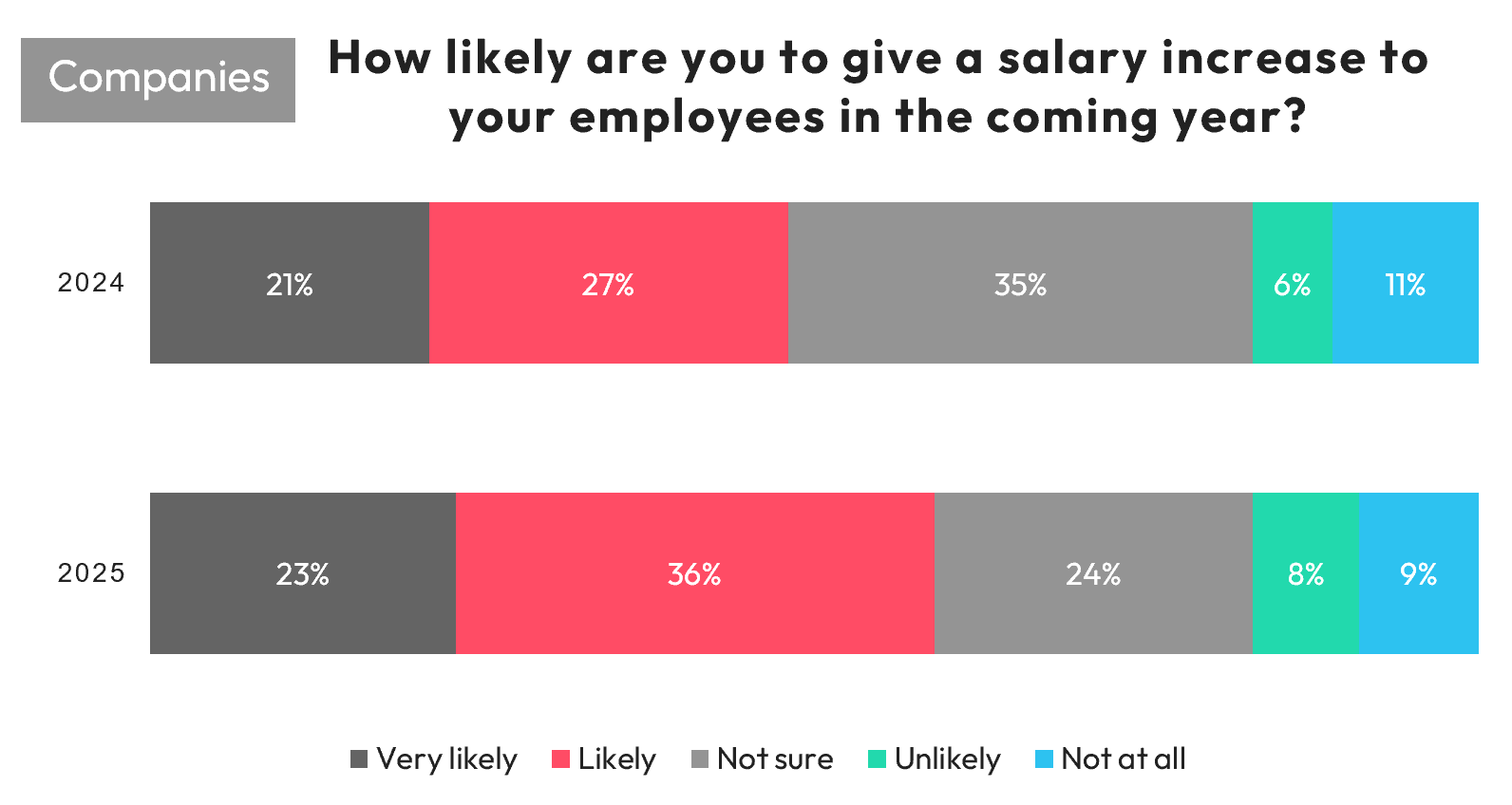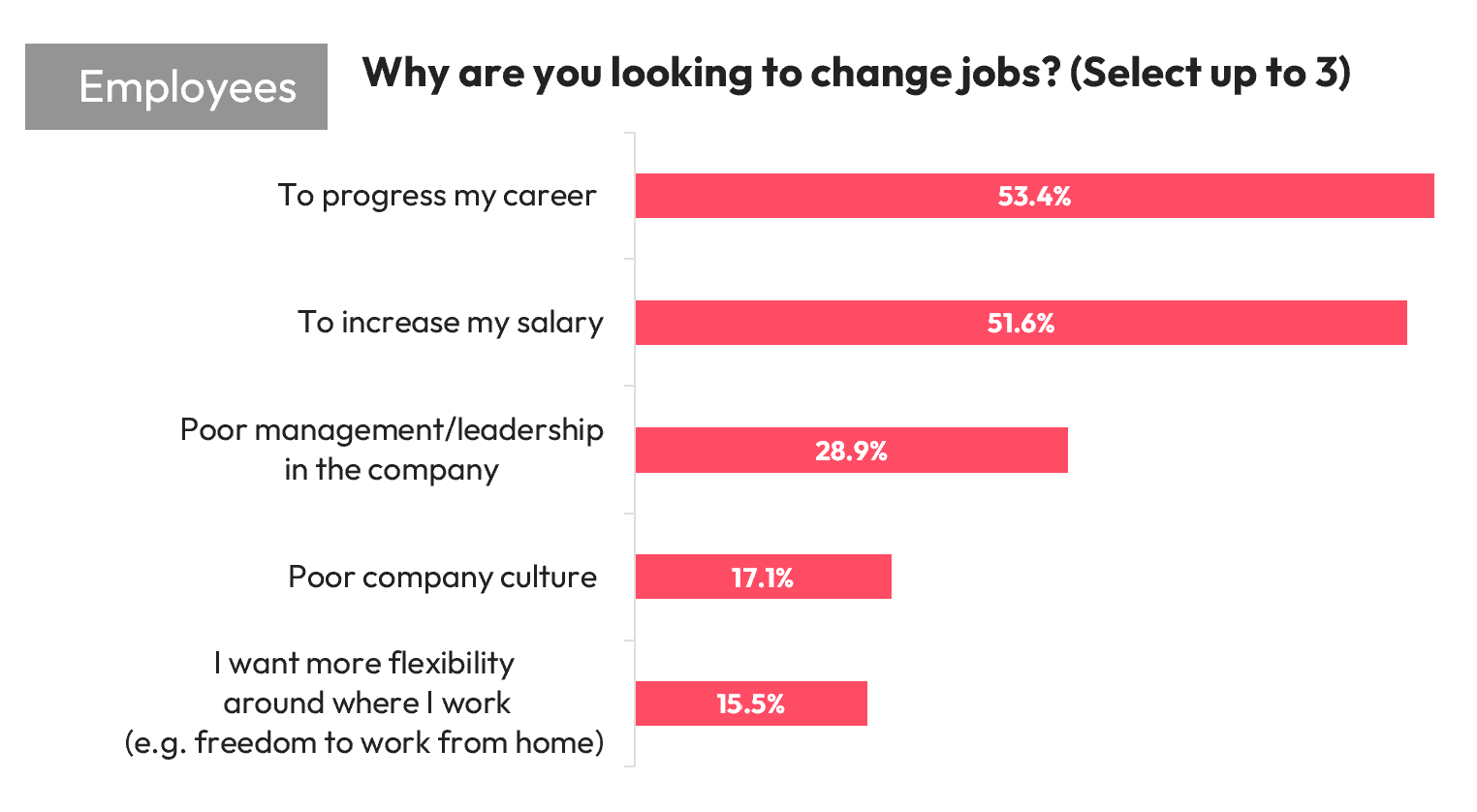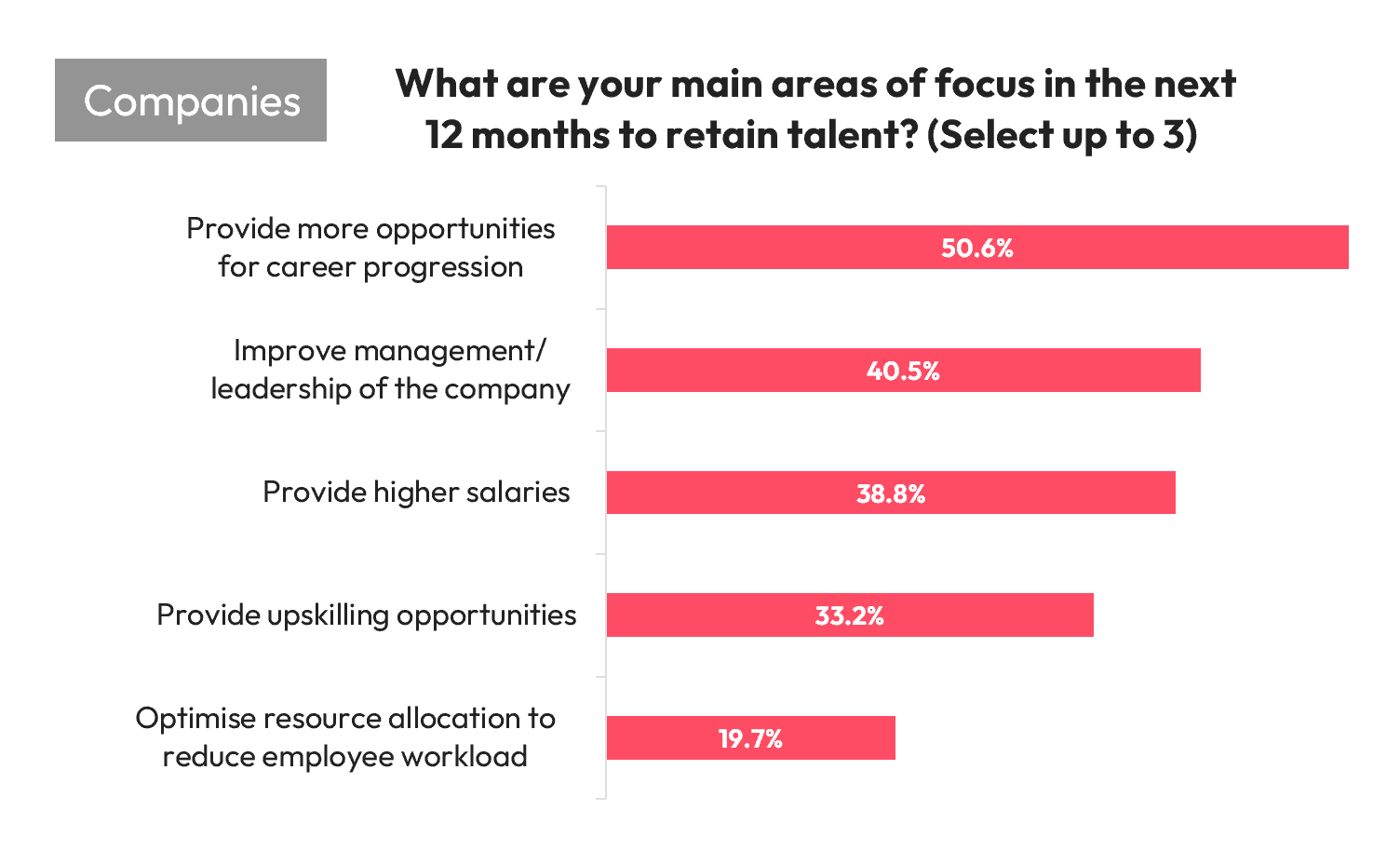Member? Please login
Robert Walters Japan Survey: 11% Increase in Companies Expecting Salary Raises from Last Year

Written by BCCJ
January 15, 2025
Member News
Below is a press release from Robert Walters Japan
On 14 January, talent solutions & advisory firm Robert Walters Japan announced the launch of its digital “Salary Survey 2025,” which summarizes hiring trends and salary levels for thousands of roles across 31 countries including Japan. Survey findings are based on responses from 283 companies and 5,105 company employees working in Japan.
To access our Salary Survey 2025 digital tool, register below:
https://www.robertwalters.co.jp/en/salarysurvey.html
More than 50% of companies expecting pay rises, with 1-5% pay rise being the most common
The survey found that 54.6% of company employees expect a pay rise in 2025, a significant increase from 37.5% last year.
Similarly, 59%* of companies either responded that they are either “very likely” or “likely” to give a salary increase to employees, up from 48% the previous year.

The findings show that companies are becoming more progressive about pay rises, influenced by inflationary pressures and the wage hike during annual labour talks. In fact, 52.9% of companies said that they “expect to offer pay rises above the inflation rate over the coming year due to inflationary pressures”.
Regarding the percentage of pay rises expected by company employees, 45.4% said they did not expect a pay rise, 37.5% said 1-5%, 11.6% said 6-10%, 2.4% said 11-15%, 1.4% said 16-20% and 1.7% said 21% or more.
On the company side, 21.9%* of companies said they did not expect to give any salary increase or were unsure, 63.8%* said 1-5%, 11.8%* said 6-10% and 2.3%* said 11-15%, indicating that many employees who are not expecting a pay rise may be surprised to get a 1-5% pay rise. The M&A Advisory & Consulting sector had the highest percentage of companies (35.9%) giving a relatively high 6-10% increase, followed by the Marketing sector (16.4%* of companies), and the Digital/IT and Sales sectors (13.2%* of companies respectively).
Young and mid-level employees most likely to receive pay rises – new graduates are key for domestic companies
While foreign-affiliated companies were generally more likely than domestic companies to give a pay rise to employees for all role levels, the percentage of domestic companies giving a pay rise to entry level/graduate employees was 55.6%, which was higher than 51.5% for foreign-affiliated companies. This suggests that domestic companies are determined to attract and retain new-grads and entry level employees through better salaries and benefits.
On a general level, companies were most likely to give a salary increase to associates (78.5% of companies) and mid-senior level employees (75.4% of companies). These are the same role levels as those which companies feel the highest shortage of talent (40.6% at the mid-senior level and 25.1% at the associate level), and it appears that many companies are implementing salary increases for young to mid-level employees as part of their retention efforts.
Companies are waking up to employees’ needs amidst an ongoing talent shortage
According to our survey for company employees, 36.2% of employees are looking to change jobs within a year, 16% are not looking to change jobs, 9.6% are looking to change jobs within 1-2 years, 5.8% within 2-3 years, 3.8% within 3-5 years and 28.5% are undecided.
The top three reasons for changing jobs were “to progress my career”, “to increase my salary”, and “poor management / leadership in the company”.
This mirrored companies’ responses when asked about their main area of focus to retain talent over the next year, with “provide more opportunities for career progression”, “improve management / leadership of the company”, and “provide higher salaries” rising to the top of the list. Their responses indicate that companies are aligned with employees’ needs and focusing on the right things to retain talent.


However, while 15.5% of employees chose “I want more flexibility around where I work (e.g. freedom to work from home)” as a reason for changing jobs, only 7.3% of companies raise workplace flexibility as a main area of focus for retention. THis gap suggests that companies may need to shift their focus more towards offering more workplace flexibility and enabling an easier way of working for employees.
With 91.4% of companies concerned about a skills / talent shortage in their field of hiring, companies are being tested on how much they can understand the needs of their employees, create attractive workplaces and improve retention rates.
*Percentage is an average number for all role levels.
(Survey period: October 2024, Target: Domestic and foreign-affiliated companies in Japan n=283; Company employees registered with Robert Walters Japan and living in Japan n=5,105.)







